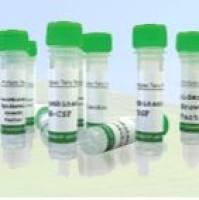eQTL Analysis in Humans
互联网
649
Improving human health is a major aim of medical research, but it requires that variation between individuals be taken into account since each person carries a different combination of gene variants and is exposed to different environmental conditions, which can cause differences in susceptibility to diseases. With the advent of molecular markers in the 1980s, it became possible to genotype individuals (i.e., to detect the presence or absence of local DNA sequence variants at each of hundreds of genome positions). This DNA sequence variation could then be related to disease susceptibility by using pedigree data. Such linkage analyses proved to be difficult for more complex diseases. Recently, with the decreasing costs of genotyping, analyses of large natural populations of unrelated individuals became possible and resulted in the association of many genes (and genetic variants in these genes) with complex diseases. Unfortunately, for a considerable proportion of these genes and their proteins, it is not yet clear what their downstream effects are. Studying the expression of these genes and proteins can help to uncover the effects of these variants on the expression of these and other genes, proteins, metabolites, and phenotypes. In this chapter, we focus on the high-throughput and genome-wide measurement of gene expression in a natural population of unrelated humans, and on the subsequent association of variation in expression to “expression quantitative trait loci” (eQTLs) on DNA using oligonucleotide arrays with hundreds of thousands of single-nucleotide polymorphism (SNP) markers that capture most of the human genetic variation well. This strategy has been successfully applied to several diseases such as celiac disease (Hunt et al. 2008, Nat Genet 40, 395–402) and asthma (Moffatt et al. 2007, Nature 448, 470–473): associated genetic variants have been identified that affect levels of gene expression in cis or in trans , providing insight into the biological pathways affected by these diseases.




![四[N-邻苯二甲酰-(S)-叔亮氨酸基]二铑双(乙酸乙酯)加合物;154090-43-4;Elemental analysis(Nitrogen) 3.30 to 4.50 %;V66234-25mg](https://img1.dxycdn.com/p/s14/2025/1029/004/8672158669127143891.jpg!wh200)




